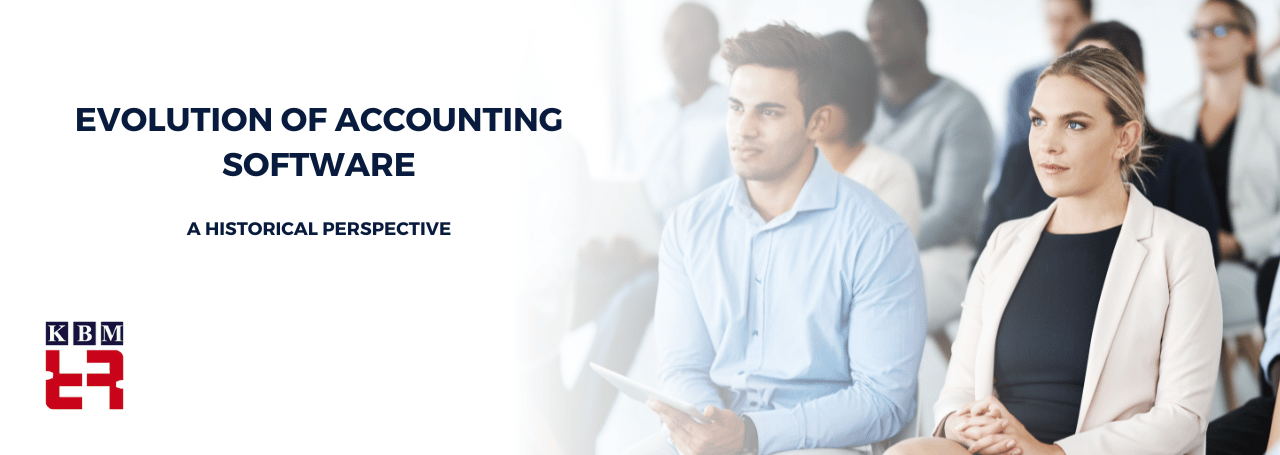The journey of accounting software traces back to the early days of computing, transforming how businesses manage their financial data. In this blog post, we delve into the historical evolution of accounting software, exploring its milestones and its significant impact on finance.
The Dawn of Digital Bookkeeping
In the 1950s, with the advent of mainframe computers, businesses began transitioning from manual bookkeeping to digital methods. Punch cards and batch processing became the norm, streamlining the tedious data entry task. This era marked the first step towards automating accounting processes, albeit in a rudimentary form.
The Rise of Spreadsheets: 1980s
The 1980s witnessed a pivotal moment in accounting software history with the introduction of electronic spreadsheets. Software like VisiCalc and Lotus 1-2-3 revolutionised financial analysis, allowing accountants to perform complex calculations quickly and accurately. Spreadsheets became an essential tool in financial management, setting the stage for more sophisticated accounting solutions.
The Emergence of Integrated Accounting Software
As businesses grew, so did their need for more comprehensive financial management tools. The 1990s saw the rise of integrated accounting software that combined various functionalities, including general ledger, payroll, and inventory management. Companies like Sage and QuickBooks emerged as market leaders, providing user-friendly interfaces for small to medium-sized enterprises (SMEs).
The Internet Age: Cloud Accounting
In the 21st century, cloud computing revolutionised accounting software, changing how things work. Cloud-based solutions such as Xero and QuickBooks Online allow users to access their financial data anywhere with an internet connection. This change not only made financial data more accessible but also improved collaboration among multiple users, leading to more flexible and collaborative financial management.
Artificial Intelligence in Accounting
Artificial intelligence (AI) integration has revolutionised accounting software recently. AI-powered systems can automate daily tasks like data entry and reconciliation, reducing the likelihood of human errors. Machine learning algorithms also facilitate predictive analytics, providing businesses with valuable insights into future financial trends. The combination of AI and accounting software represents a substantial leap forward in efficiency and accuracy.
Blockchain and the Future of Accounting
Looking ahead, blockchain technology is poised to revolutionise accounting practices once again. The decentralised and tamper-resistant characteristics of blockchain ensure financial transaction integrity, reducing the risk of fraud. Smart contracts, which are self-executing agreements with terms encoded directly, hold the potential to automate intricate financial processes, thereby further streamlining accounting tasks.
Conclusion
The journey of accounting software, from the modest origins of mainframe computers to today's AI and blockchain era, mirrors a constant pursuit of efficiency and accuracy in financial management. With ongoing technological advancements, businesses can anticipate more innovations to redefine the accounting landscape, bringing new opportunities and challenges for finance professionals. The story of accounting software still needs to be finished, and the upcoming chapter promises to be even more transformative.






















